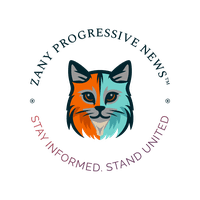Recently updated on August 5th, 2024 at 11:26 pm
The United States is considering a plea deal that would allow WikiLeaks founder and whistleblower Julian Assange to return to Australia, the Sydney Morning Herald reported Monday.
U.S. Ambassador to Australia Caroline Kennedy told the Morning Herald that there could be a “resolution” to Assange’s now-four-year detention in Britain. Assange, an Australian citizen, has been held in a London prison since 2019 while combating U.S. extradition efforts. He faces 18 criminal charges in the U.S., 17 of which allege violations of the Espionage Act.
Kennedy’s comments come weeks after U.S. Secretary of State Antony Blinken rebuffed Australia’s calls to end the prosecution against Assange. After a July meeting with Australian Foreign Minister Penny Wong in Brisbane, Blinken said the whistleblower was “charged with very serious criminal conduct” for his role in publishing classified American government materials. The files Assange shared in 2010 included footage of a U.S. airstrike in Baghdad that killed 18 civilians — including journalists — and hundreds of thousands of field reports from the Iraq War.
“There is a way to resolve it,” Kennedy said on Assange’s detention, adding that a plea deal would be “up to the Justice Department.” The Department of Justice declined to comment. The State Department did not respond to The Intercept’s request for comment.
“The administration appears to be searching for an off-ramp ahead of [the prime minister’s] first state visit to DC in October,” Gabriel Shipton, Assange’s brother, told The Intercept. “If one isn’t found we could see a repeat of a very public rebuff delivered by Tony Blinken to the Australian Foreign Minister two weeks ago in Brisbane.”
Dan Rothwell, an international law expert at Australian National University, told the Morning Herald that he believes a likely outcome would involve American authorities downgrading the charges against Assange in exchange for a guilty plea, while taking into account the four years he has already spent in prison.
In May, Kennedy met with a cross-party delegation of parliamentary supporters of Assange. “The U.S. and Australia have a very important and close relationship, and it’s time to demonstrate that,” Independent MP Andrew Wilkie said at the time.
Assange’s case has raised major press freedom concerns around the globe. “The United States is applying extra-territorial reach by charging Assange, who is not a US citizen and did not commit alleged crimes in the US, under its Espionage Act,” a group of former Australian attorneys general wrote to Prime Minister Anthony Albanese last week. “We believe that this sets a very dangerous precedent and has the potential to put at risk anyone, anywhere in the world, who publishes information that the US unilaterally deems to be classified for security reasons.”
As part of WikiLeaks’ release of documents, Assange coordinated with outlets like Spain’s El País, France’s Le Monde, the U.K.’s The Guardian, and the New York Times to release classified cables revealing the inner-workings of bargaining, diplomacy, and threat-making around the world.
Continue reading on The Intercept








